Indigenous Governance Database
Governance
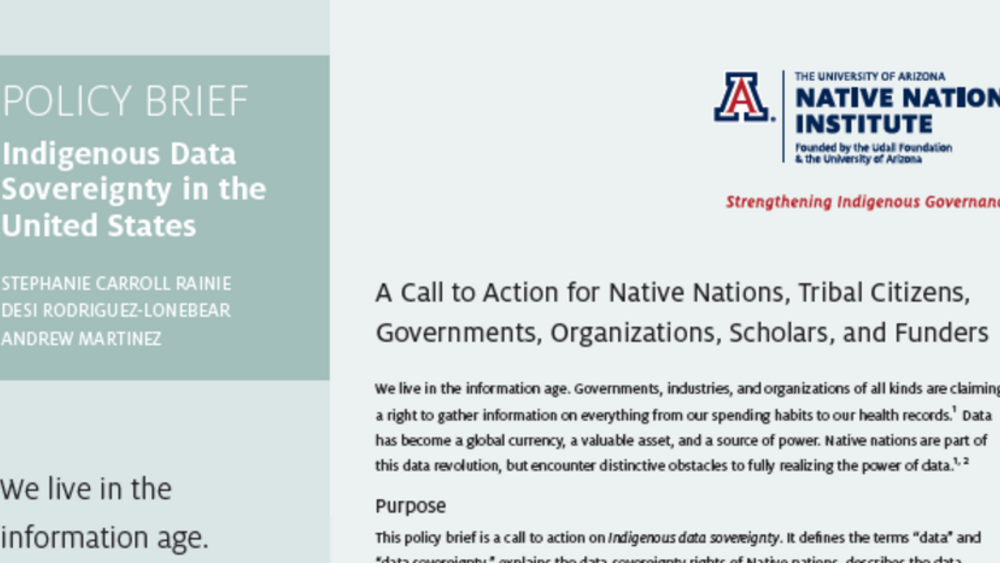
Policy Brief: Indigenous Data Sovereignty in the United States
We live in the information age. Governments, industries, and organizations of all kinds are claiming a right to gather information on everything from our spending habits to our health records. Data has become a global currency, a valuable asset, and a source of power. Native nations are part…
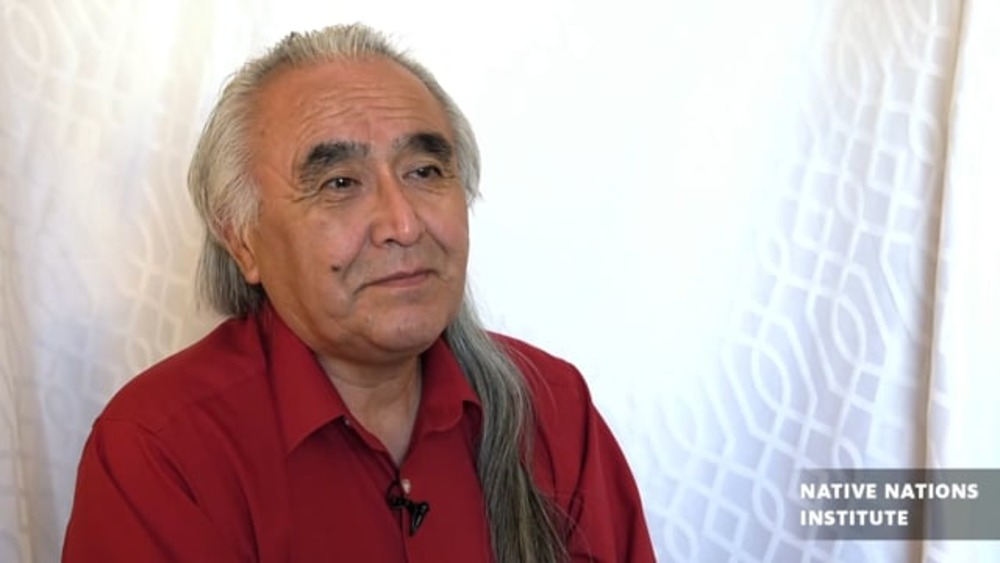
Jerry Isaac: Native Leader Experiences in Alaska
Jerry Isaac has been on the forefront of shaping indigenous governance in Alaska as former President of Tanana Chiefs Conference, former Chief for the Native Village of Tanacross, and a Board Member of Doyon Limited. He offers his perspectives about being a good leader and the…
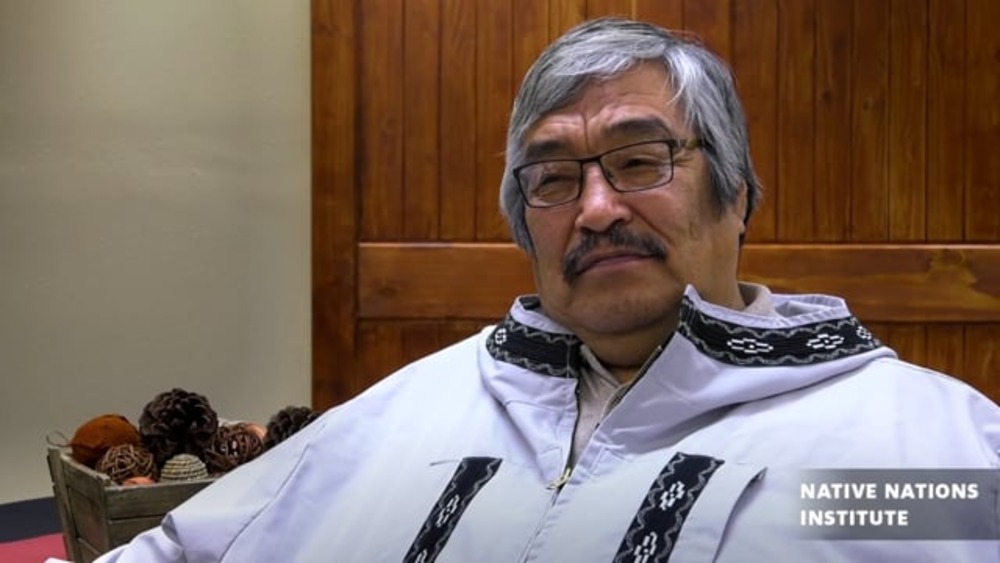
Mike Williams: Alaska Native governance and a healthy culture
Mike Williams is a well known indigenous leaders from being a Chairman and Vice-Chair of the Alaska Inter-Tribal Council as well as Chief of the Yupiit Nation. Mike offers his impressions about a variety of topics related indigenous governance including leadership, traditional governance,…
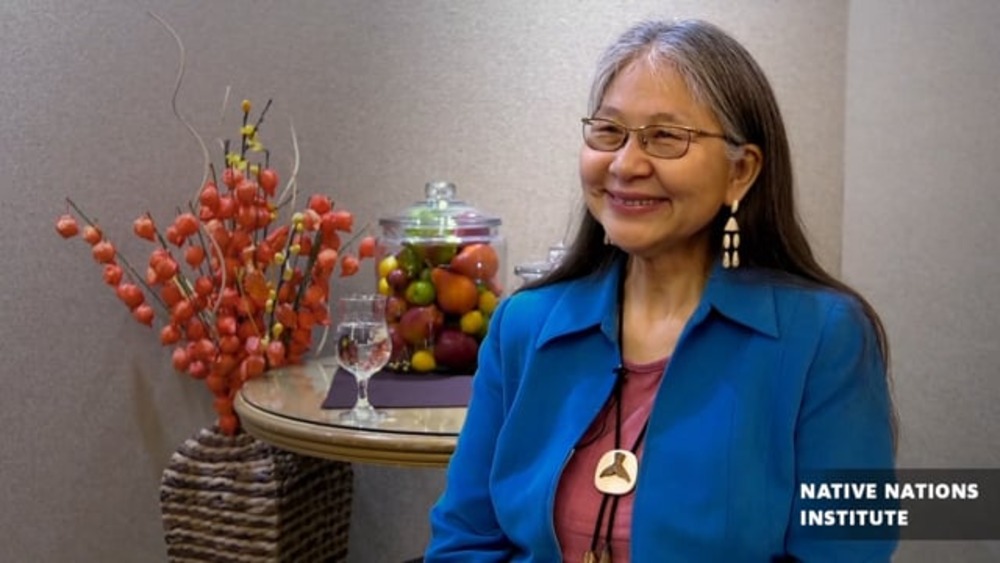
Theresa Arevgaq John: Alaska indigenous governance through traditions and cultural values
Theresa Arevgaq John is a well known Y’upik cultural advocate and Associate Professor in Indigenous Studies and the Department of Cross-Cultural Studies at the University of Alaska Fairbanks and has intimate knowledge about cultural practices within Indigenous governance. She advocates…
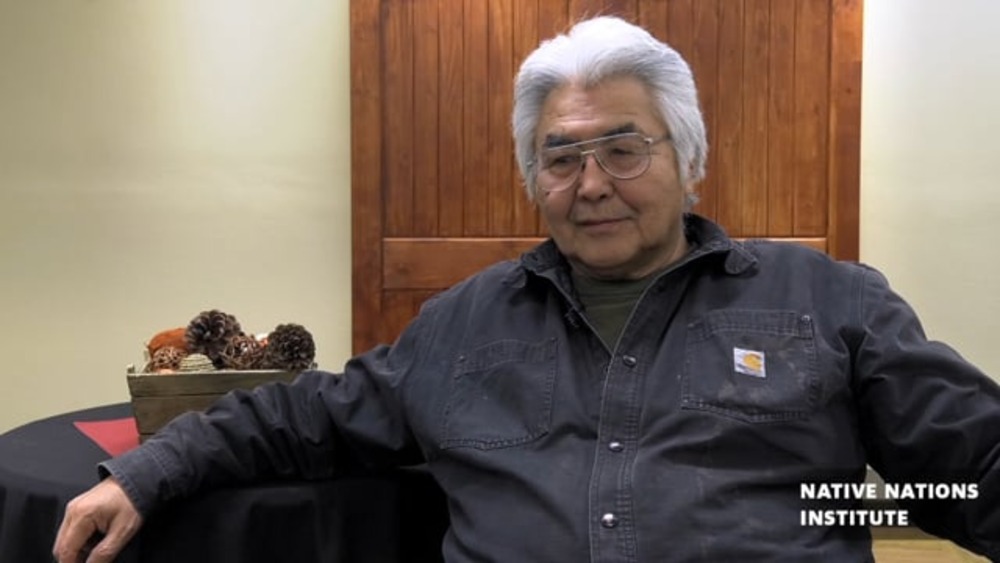
Wilson Justin: Leadership with Cultural Knowledge and Perseverance
Wilson Justin is a cultural ambassador for Cheesh’na Tribal council and serves as a Vice Chair Board of Directors for Mt. Sanford Tribal Consortium. He relays his expertise and perspective on the intricacies of Indigenous governance in Alaska through adapting cultural traditions, creating a…
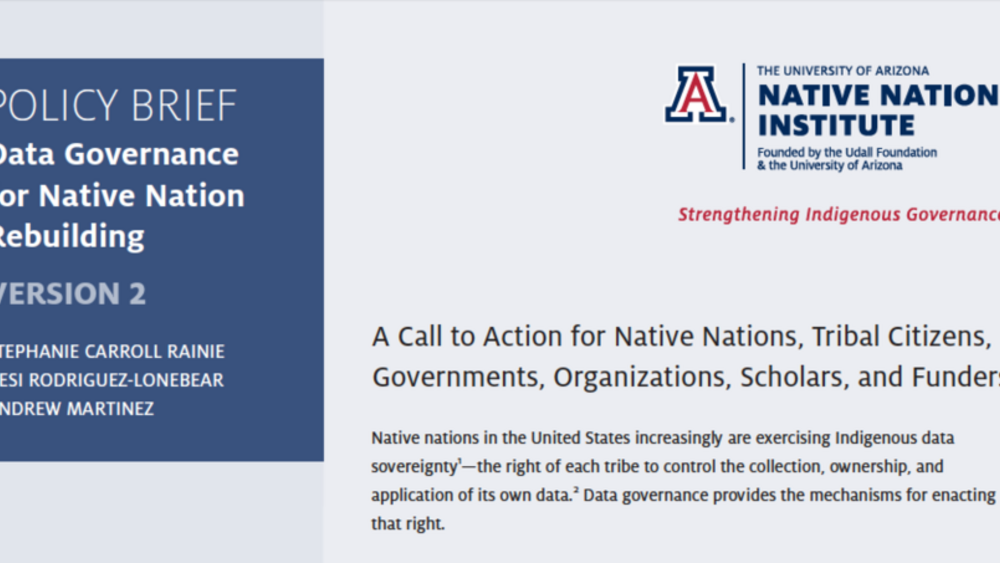
Policy Brief: Data Governance for Native Nation Rebuilding
Native nations in the United States are increasingly exercising Indigenous data sovereignty (ID-Sov)— the right of a nation to govern the collection, ownership, and application of its own data. While ID-Sov is the goal, data governance— the ownership, collection, control,…
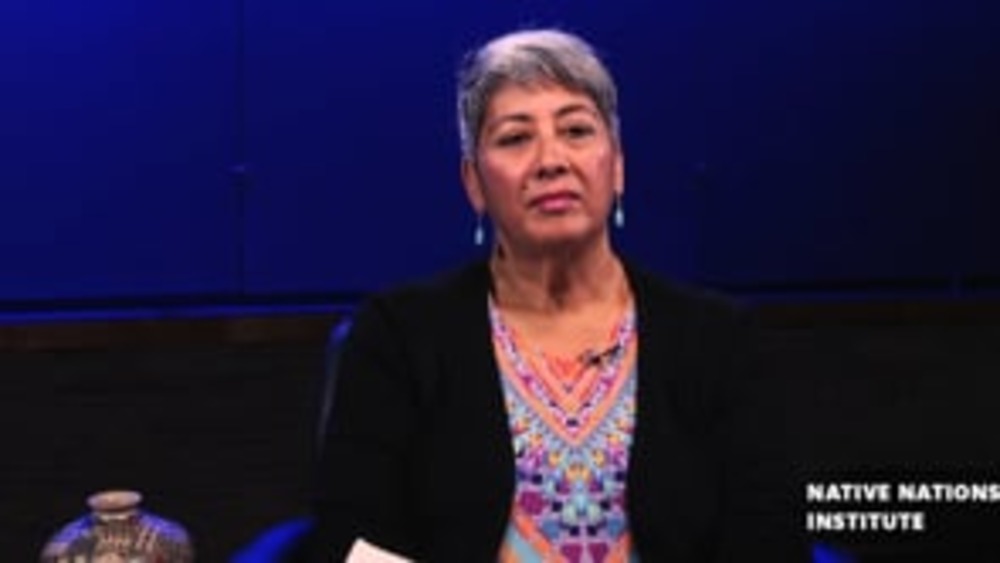
Sharon Toi: Honoring Maori Traditions and Governance
Sharon Toi is Ngāpuhi Māori and a 2014 recipient of a Fulbright Visiting Scholar-Ngā Pae o Te Māramatanga Graduate Award that funded her residency at the Indigenous Peoples Law and Policy Program housed within the University of Arizona’s College of Law. Sharon shares her extensive knowledge…
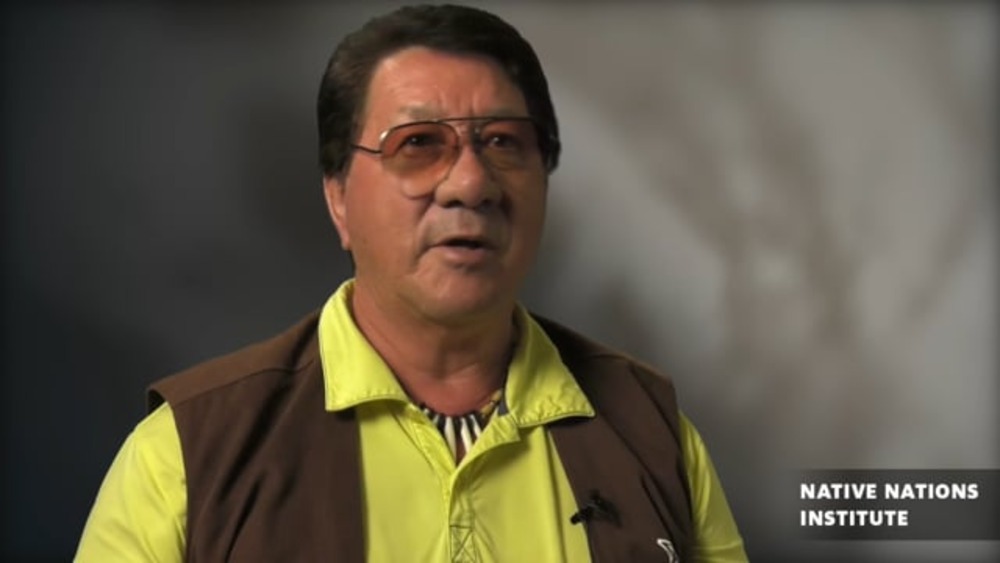
Michael Kanentakeron Mitchell: Stories and Reflections on Indigenous Governance
Former Grand Chief Michael Kanentakeron Mitchell of the Mohawk Council of Akwesasne recently stepped down from his role as Grand Chief after decades of building a strong independent jurisdiction. Chief Mitchell offers some of his stories and reflections in indigenous governance that…
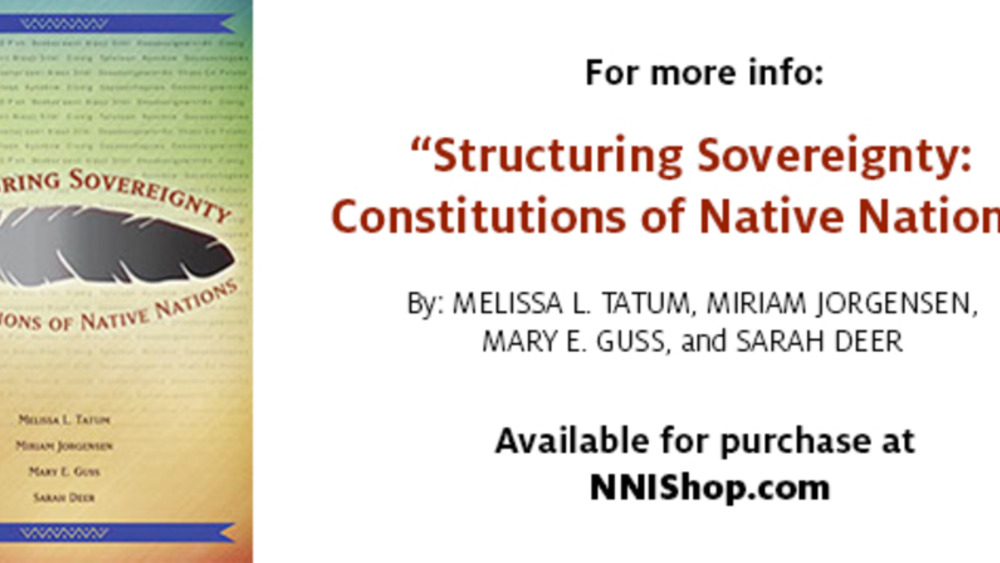
Blackfeet Nation Constitution
The Blackfeet Nation is located in Northern Montana at the Canadian border. It has a population of 16,500 people and the tribe was artificially divided by the U.S.-Canadian border. The constitution was enacted in 1934 and amended in 1962, 1978, and 1998. PREAMBLE: We, the adult members of the…
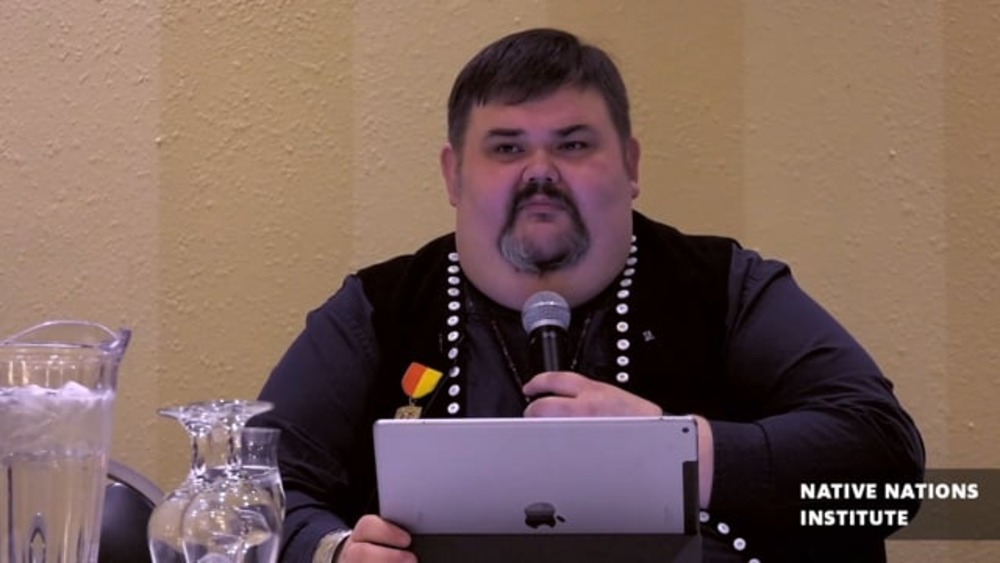
Richard Peterson: Leading in the Traditional Way Alaska Tribal Government Symposium
President, Central Council of the Tlingit and Haida Indian Tribes of Alaska Richard (Chalyee Eesh) Peterson is Tlingit from Kaagwaantaan clan. He gives his prespective on the ways tribal governement makes a presence in Alaska and the intergrating traditional knowledge and culture into tribal…
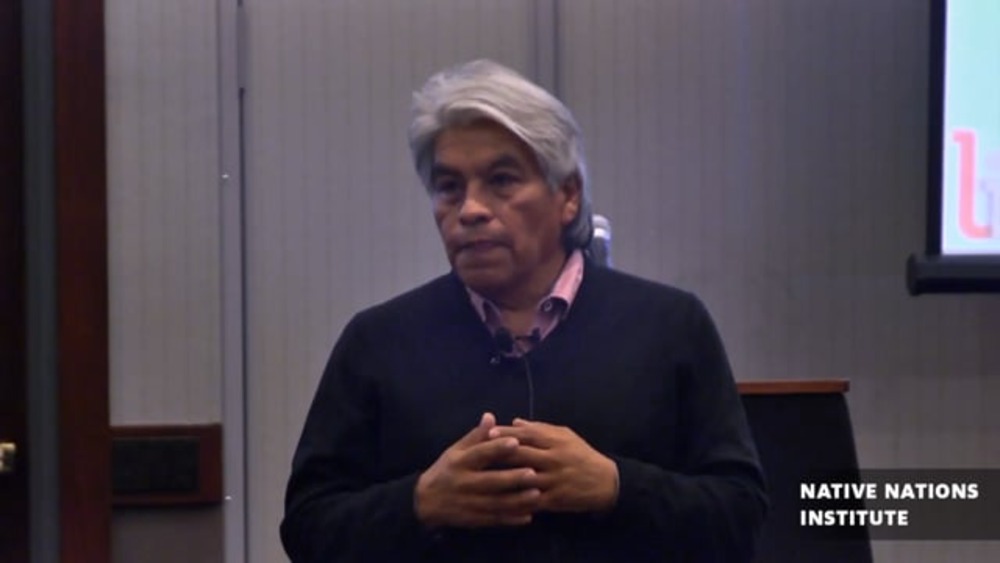
Regis Pecos: Resilience of Culture and Indigenous Heritage
Former Governor, Cochiti Pueblo Regis Pecos speaks to the Native Nation Rebuilders Cohort 2015. He highlights the strength of indigenous heritage and resilience of culture for Native nations to govern themselves.
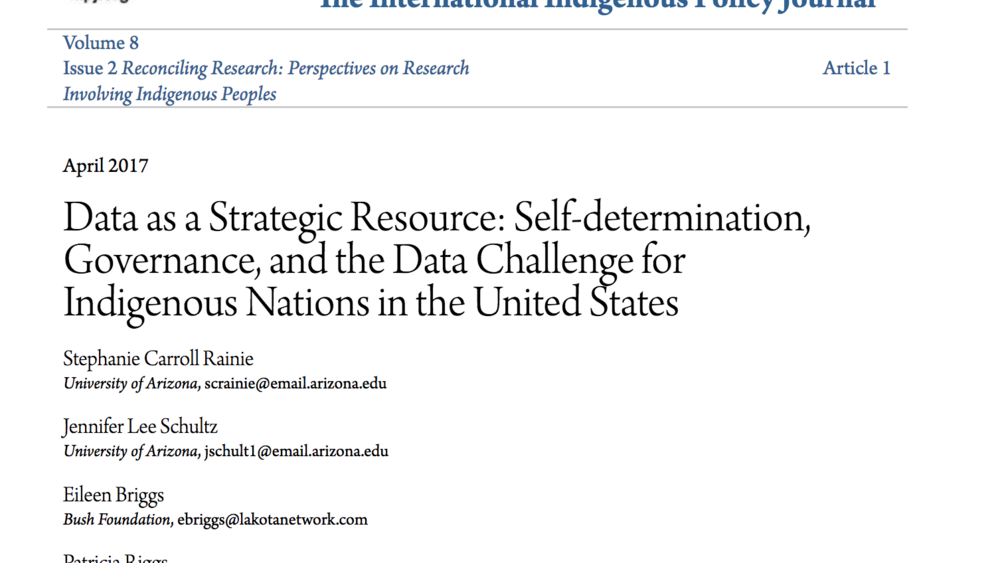
Data as a Strategic Resource: Self-determination, Governance , and the Data Challenge for Indigenous Nations in the United States
Data about Indigenous populations in the United States are inconsistent and irrelevant. Federal and state governments and researchers direct most collection, analysis, and use of data about U.S. Indigenous populations. Indigenous Peoples’ justified mistrust further complicates the collection and…
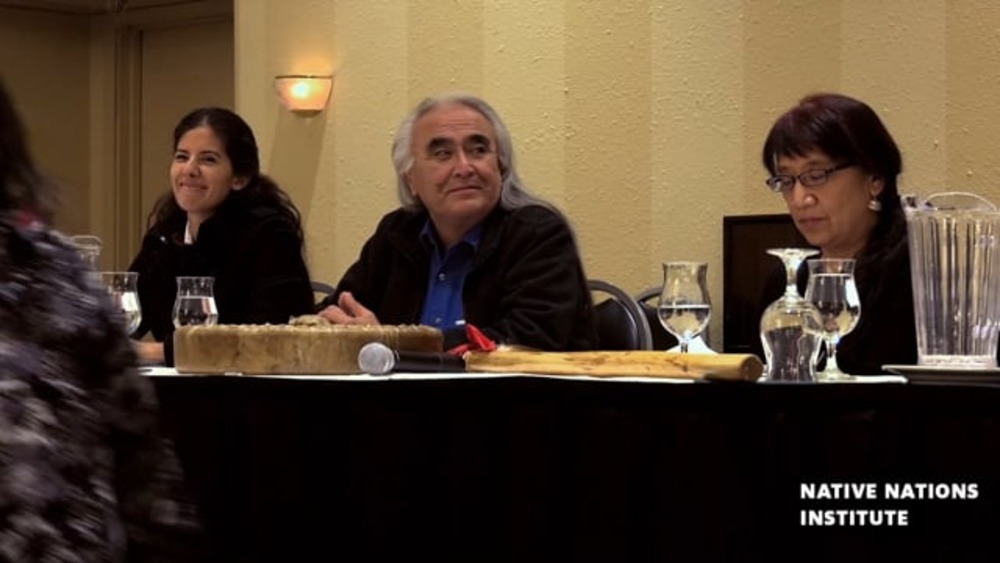
Governance and Wellness Roundtable - Alaska Tribal Government Symposium
This discussion at the Alaska Tribal Government Symposium emphasizes the connections between Indigenous self-government and wellness. Western methodologies are eager to emphasize the gaps in wellness (social, economic, and medical and mental health outcomes) between natives and non-natives.…
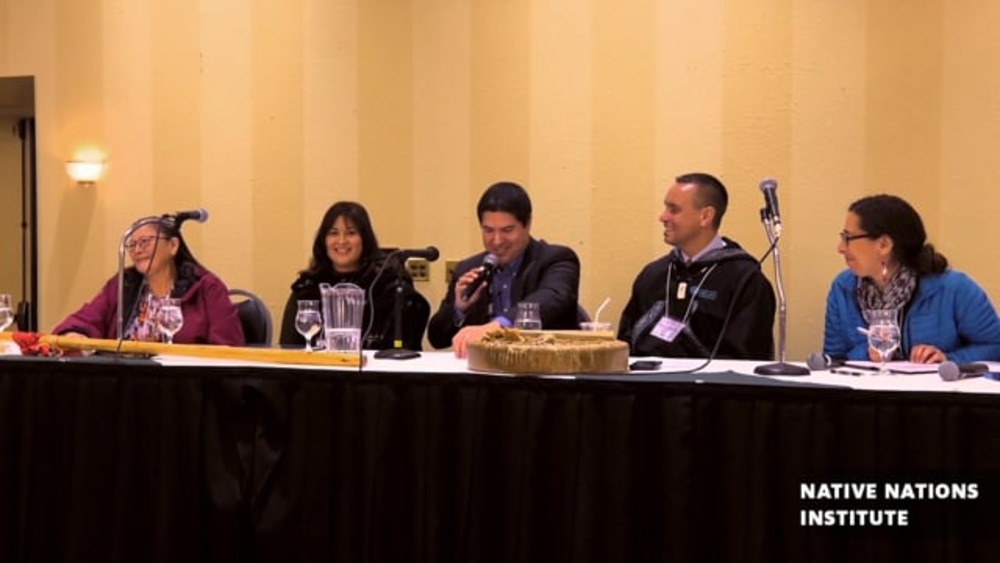
Indigenous Leadership Panel
What is going on in Alaska that exemplifies the success of Indigenous leaders? What are some Alaska tribes’ successful efforts to strengthen their governments and governance? Panelists share stories of success at asserting self-determination, building native governing institutions, reflecting…

Tribally-Driven Participatory Research: State of the practice and potential strategies for the future
This article discusses current practice of research with and by American Indian tribal governments in the United States. It begins with a brief overview of Community-Based Participatory Research and compares and contrasts its principles and methods with what this paper terms Tribally-Driven…
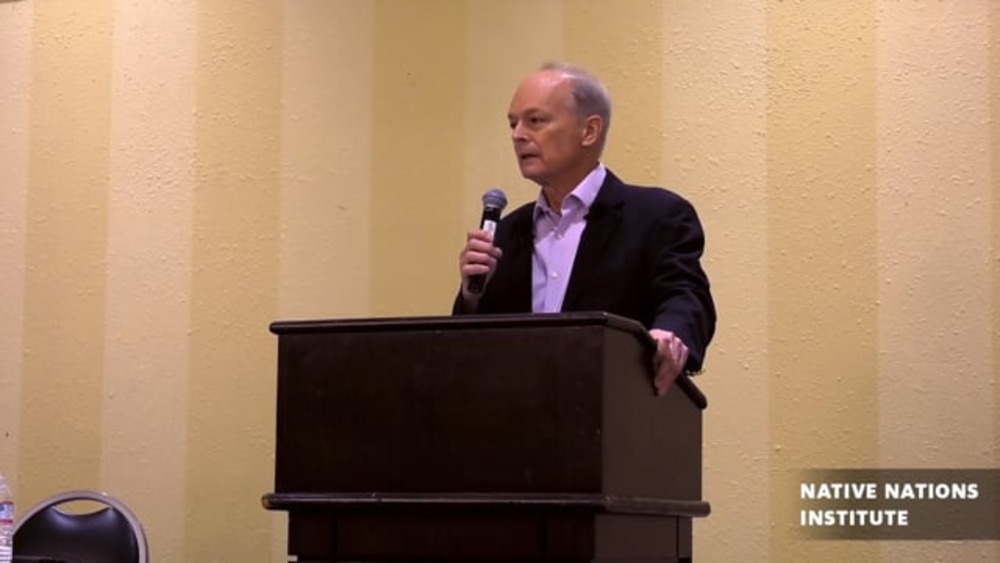
Stephen Cornell, Introduction to Native Nation Building, Alaska Tribal Government Symposium
An overview about Native nation building and the ability for Native communities in Alaska to rebuild their Native nations.
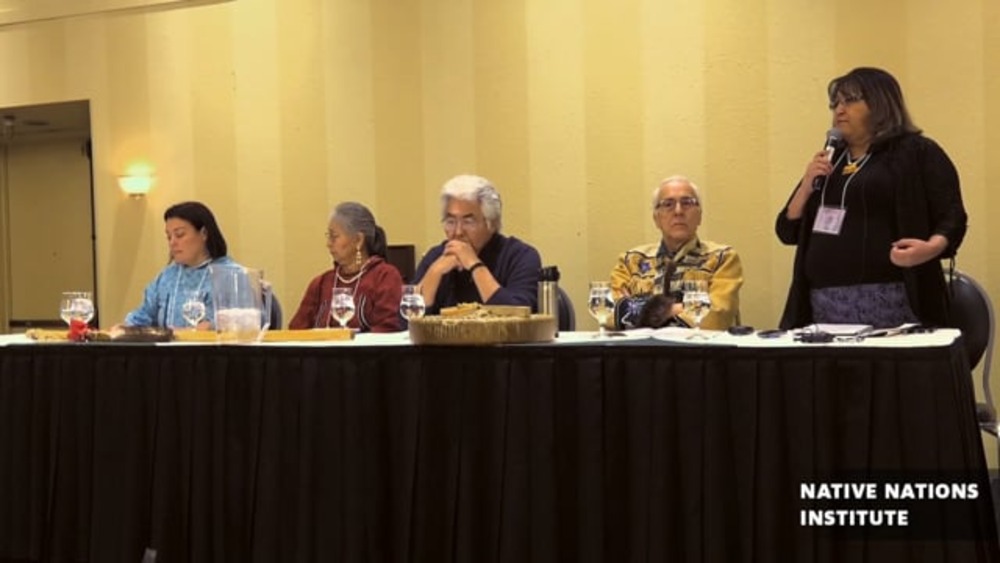
Roundtable: Traditional and Modern Governance and Decision Making in Alaska
A panel discussion with Native leaders in Alaska about the significance of tradition and culture that has influenced their Indigenous governance.
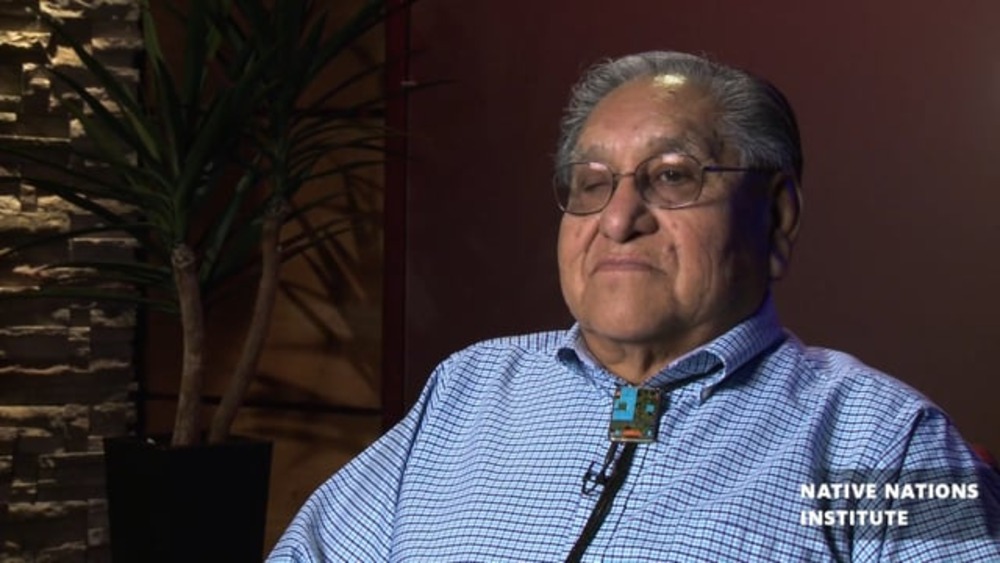
Leroy Shingoitewa: Self-Governance with Hopi Values
Leroy Shingoitewa, member of the bear clan, and served as chairman of the Hopi tribe and since January 2016, has served as a councilman representing the village of Upper Moenkopi. He recalls the intricacies of governing while maintiang Hopi values and traditions.
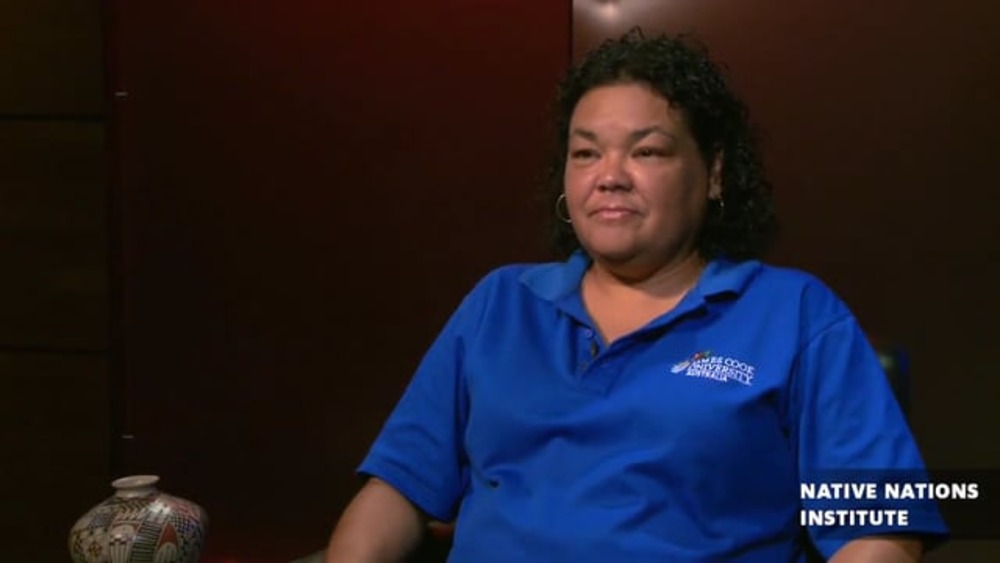
Michelle Deshong: Australian Aboriginal Methods of Self-Governance
Michelle Deshong draws her connections to Kuku Yalanji and Butchulla nations. She is a 2015 recipient of the Australian-American Fulbright Indigenous Professional Scholarship that funded her residency at the Native Nations Institute housed within the Udall Center for Studies and Public…
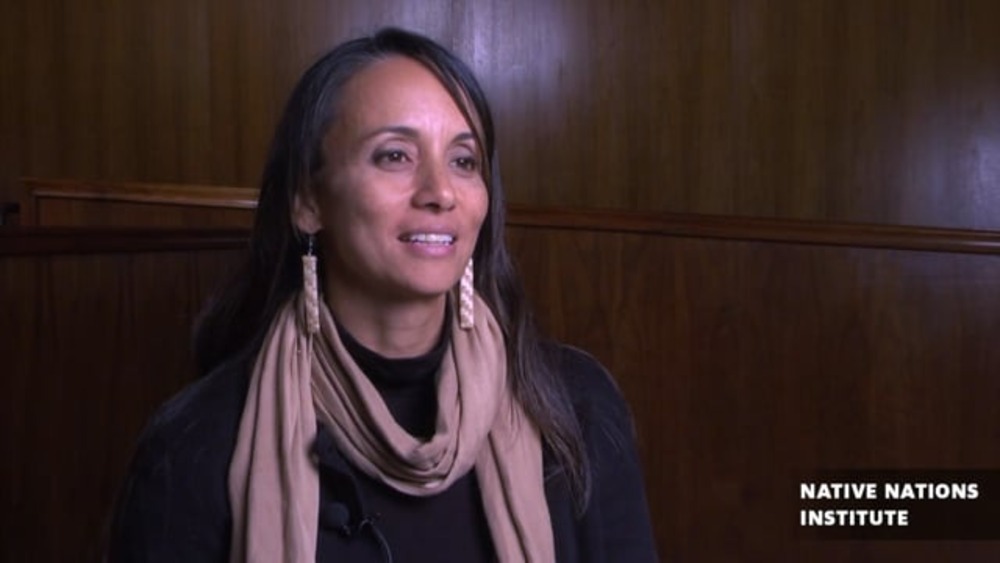
Noelani Goodyear Ka'opua: The ongoing journey of Hawai'i sovereignty
Dr. Noelani Goodyear Ka'opua from the Indigenous Politics Faculty within the department of political science at the University of Hawai’i at Manoa speaks about the particulars of handling the issue of soverignty in Hawai’i.
Pagination
- First page
- …
- 4
- 5
- 6
- …
- Last page
